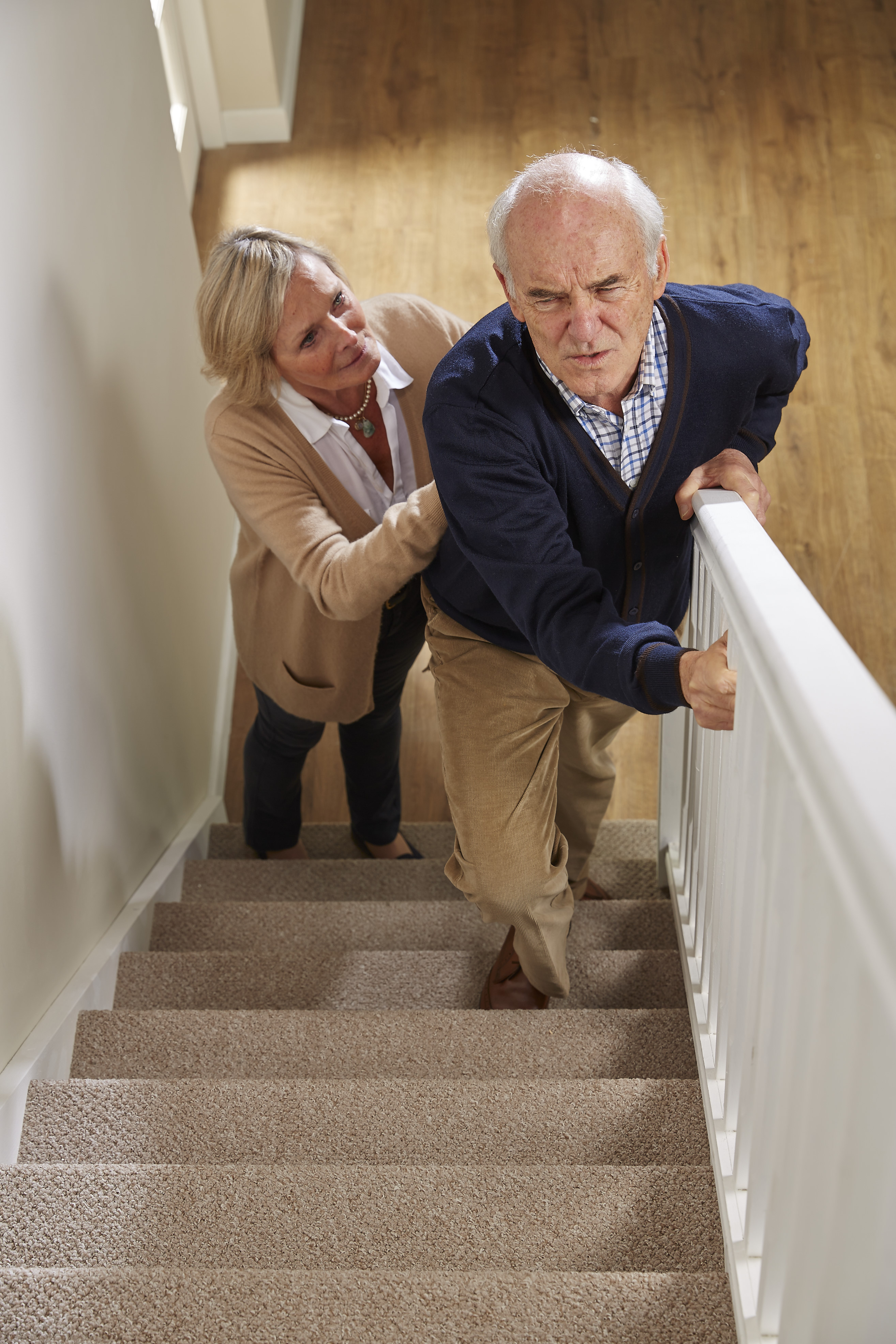THERE are several reasons why people who could improve their quality of life with an Acorn Stairlift put off getting one, but perhaps the most worrying one we hear is… “climbing the stairs is the only exercise I get”.
It’s easy to see what someone means when they say this; that climbing the stairs, however troublesome or tiring, forces them into some physical exertion during the day. Fitting a stairlift might feel like giving up on exercise and giving in to immobility, but that really isn’t the case.
 For a start, if there’s one place in your home where you really shouldn’t exercise if you have limited mobility, it’s your stairs. A slip or trip anywhere in your home is never welcome and could have serious consequences, but a fall on the stairs could be catastrophic. Similarly, if physical exertion makes you lightheaded or dizzy, the last place you want that to happen is on the stairs. Whatever you do, don’t fall on the stairs.
For a start, if there’s one place in your home where you really shouldn’t exercise if you have limited mobility, it’s your stairs. A slip or trip anywhere in your home is never welcome and could have serious consequences, but a fall on the stairs could be catastrophic. Similarly, if physical exertion makes you lightheaded or dizzy, the last place you want that to happen is on the stairs. Whatever you do, don’t fall on the stairs.
Far better to let an Acorn Stairlift glide you smoothly up and downstairs in comfort and safety as often as you like, then put the energy you save into a planned, sensible and enjoyable exercise regime in a safe environment. Getting regular exercise remains important throughout life brings benefits in many areas, not just for physical wellbeing but to boost your mood, ease depression, relieve stress and improve your self-esteem.
Limited mobility doesn’t have to stop you exercising – it’s just a matter of finding the right exercise for you, both in terms of the health benefits it brings and how it makes you feel. It’s important that you enjoy the exercise you choose, as you’re less likely to keep it up if you think of it as a chore you have to do, rather than a something nice you want to do.
The really important thing is to speak to your doctor or other health professional before embarking on a new exercise regime. They will be able to advise on the best type of exercise to suit your individual circumstances. They might also have information about suitable exercise classes or activity groups in your area, if you would like to join a supervised group. For many people this is a good way to make sure you exercise on a regular basis, with the added benefit of making new friends and socialising.
Other people might prefer to exercise at home and again there are many options available, including sitting exercises if you find it difficult to stand for any length of time. Another key thing with exercise is to start slowly and build up gradually, increasing the amount or intensity of exercise only when you feel ready to do so. A little bit on a regular basis is far better than throwing yourself in at the deep end and overdoing it.
Exercise can be designed to build strength, enhance flexibility, improve balance, or a combination of all three. There is also strong evidence that moderate intensity, low-impact activity is just as effective in lowering the risk of heart disease as more physically demanding forms of exercise.
Perhaps the most effective low-impact exercise, and certainly the most popular, is simply walking. It needs no specialist equipment (other than a good pair of comfortable, flat shoes), it can be done in your local area, you can set your own route and distance and take rests along the way as you need them. You could also walk with a friend or join a walking group if you want to exercise with others.
A more recent development is ‘Nordic Walking’, which is walking while using a walking pole in each hand. Some people describe it as skiing without the skis, but it can be a great option if you need a little reassurance from walking sticks, and it works the upper body as well as the legs. There may well be a Nordic walking group in your area, or you can do it alone or with a friend.
Swimming is another great exercise which works the whole body while putting minimum stress on the joints. You can go at your own pace and build up how much you do as you get fitter and it gets easier. Other examples of low-impact exercise include yoga, tai chi, pilates and aqua aerobics. These are often done in classes or groups, but not necessarily so.
You could also start an activity which delivers exercise as a beneficial side-effect, such as playing bowls, golf or dancing. Even singing in a choir will benefit your breathing and general fitness. Whatever you decide to do to boost your exercise and improve your health, it’s a good idea to check first with your doctor that it’s right for you. And remember, the stairs are never a good place, or a safe place, to get your exercise.
For more information on easy exercises to get you started, visit the NHS Choices website by clicking here. To find out more about investing in an Acorn Stairlift to enhance your safety and quality of life, call us on Freephone 0800 01609760 or click on the green ‘Get a free quote’ button at the top right of this page. Arranging a free home survey at a time to suit you won’t cost you a penny and carries no obligation to buy, but it will give you all the information you need, including a quote with no hidden extras and valid for a whole year.
